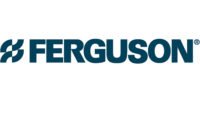IAPMO CEO GP Russ Chaney has sent a letter to the White House and leaders in both houses of Congress outlining clear necessities on behalf of the plumbing industry that should be part of any legislation passed to address economic hardships caused by the COVID-19 global pandemic.
A copy of the letter may be read at: https://www.iapmo.org/media/23554/iapmo_letter_to_congress_covid19_03-23-2020.pdf.
“The plumbing industry is at the heart of America’s response — ensuring that hundreds of millions of Americans have access to the water and sanitation critical to stopping the spread of this disease,” Chaney writes. “To minimize the number of businesses closed and workers unemployed in our industry, and support those on the front lines who are securing access to safe, clean water and proper sanitation for all Americans, the response from Washington needs to be coordinated, massive and focused on ensuring that all employers in our sector have the resources necessary to ride out the pandemic.”
Among the measures Chaney recommends are:
- Expand the allowable uses for 7(a) loans to permit payroll support, including paid sick leave, supply chain disruptions, employee salaries, mortgage payments and other debt obligations to provide immediate access to capital for small businesses.
- Suspend the filing of business returns and the payment of all business taxes to the federal government for the duration of the pandemic. These suspended taxes should include taxes owed for the 2019 tax year, estimated payments for 2020, and all payroll tax obligations. The suspension should be broad and apply to all businesses. When the pandemic is over, the repayment of any deferred taxes should be spread out over time.
- Treat the broader construction industry and the work it performs as vital and essential to the critical industries that must remain in operation to respond to this pandemic and crises to come. On March 19, DHS issued guidance listing 16 critical infrastructure industries whose workforces should maintain their normal work schedules. Though construction was not explicitly listed, it is crucial to the operation of all 16 industries. In the absence of clear federal guidance, many states and localities have taken a wide variety of unreasonable approaches to addressing the ongoing operation of our industry.
- Ensure home water and energy service continuity. Congress should require that states and utilities receiving funds through stimulus legislation adopt or maintain in force policies to prevent the shutoff of electricity, home heating and cooling, and drinking and wastewater services to residential customers during the COVID-19 public health emergency.
- Provide drinking water and wastewater assistance to low-income households. COVID-19 related legislation should include financial assistance to low-income and other adversely affected consumers to assist with payments for drinking water and wastewater expenses by authorizing $1.5 billion for grants to states, territories and Indian Tribes.
Last week, the White House and the Department of Homeland Security identified plumbing industry professionals as indispensable in its Guidance on the Essential Critical Infrastructure Workforce: Ensuring Community and National Resilience in COVID-19 Response.




